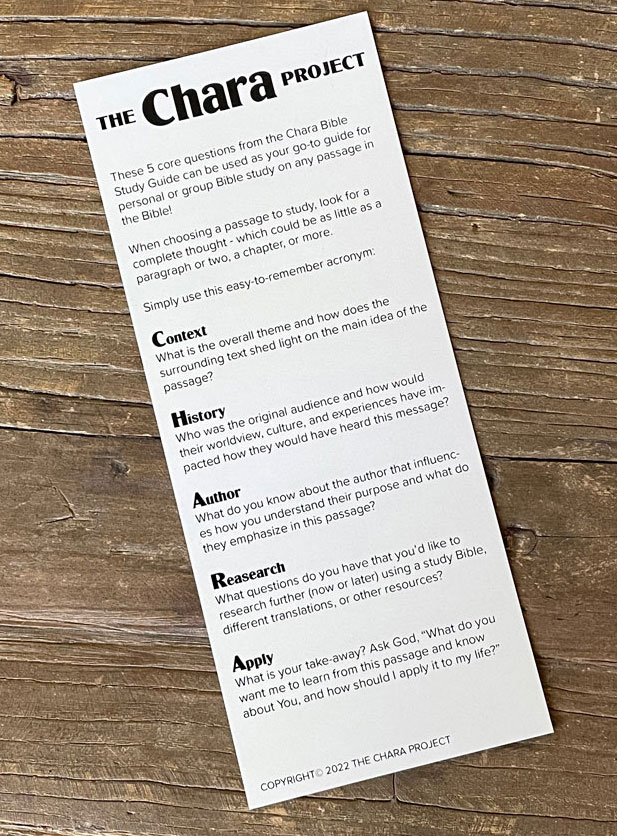CONTEXT, CONTEXT, CONTEXT.
As we step into reading any wisdom literature, the biggest key to understanding and applying what we read, comes from knowing the CONTEXT of the passage. Here are 5 easy tips to follow:
1. Read the surrounding verses. Begin with reading the immediate context of the sentences and chapters surrounding a verse. Wisdom literature can be full of words of advice, like when Solomon writes, “Avoid anyone who talks too much” (Proverbs 20:19, NIV). When we back out and see the preceding statement, we realize the author is talking specifically about gossip and it changes the intended application.
2. Understand the book’s overall message. While Proverbs includes many short statements that likely can be understood on their own, the books of Job and Ecclesiastes were intended to be interpreted as a whole. Reading just one section of these two books can lead to confusion or the wrong interpretation, so make sure to capture the full message by understanding the entire book.
3. Identify who is talking. Some passages include bad ideas, like Job’s friends telling him “the wicked man suffers torment” (Job 15:20, NIV), which is their opinion, not actual fact. When we understand who is talking, who they are talking to, and the intent of what they are saying, it helps us better grasp the passage and its applicability (or non-applicability) to our life.
4. Take wisdom for what it is: guidance. The wisdom poured into these books (especially Proverbs) are guiding principles of what living a good life can look like. They are not promises. While it would be amazing to know that when you “Discipline your children, and they will give you peace” according to Proverbs 29:17 (NIV), we all know this doesn’t happen 100% of the time! These words of wisdom are meant to be taken for what they really are – guidance on how to live a wise life.
5. Watch for hyperboles or figurative language. The authors of wisdom literature often ask rhetorical questions, exaggerate an idea, or use hyperbole to make a point. The language is meant to paint a picture or help us understand the perspective of the writer. Common sense should be used when determining when it’s figurative or poetic language versus something to take literally. Some examples* of hyperbole and figurative language include:
“Wisdom has built her house” (Proverbs 9:1, NIV)
“Utterly meaningless! Everything is meaningless.” (Ecclesiastes 1:2, NIV)
“Who shut up the sea behind doors when it bursts forth from the womb.” (Job 38:8, NIV)
*The authors aren’t really talking about a house built by a woman named Wisdom, or that life is truly meaningless, nor does the sea come from a womb. Instead they are painting a picture to help better make their point, and they should be interpreted as such.
HOW DO I GET THE MOST OUT OF IT?
Ask yourself the following questions as you read wisdom literature:
-
What is the overall message of the book?
-
Who is speaking, who are they speaking to, and what message are they trying to get across?
-
Is this message providing guidance, or is it debating life’s meaning or purpose?
-
What practical wisdom did I learn that I can apply to my life today?
-
What observations, questions or thoughts do I have from the passage?
-
How can I alter my life, character, or actions based on what I learned?


